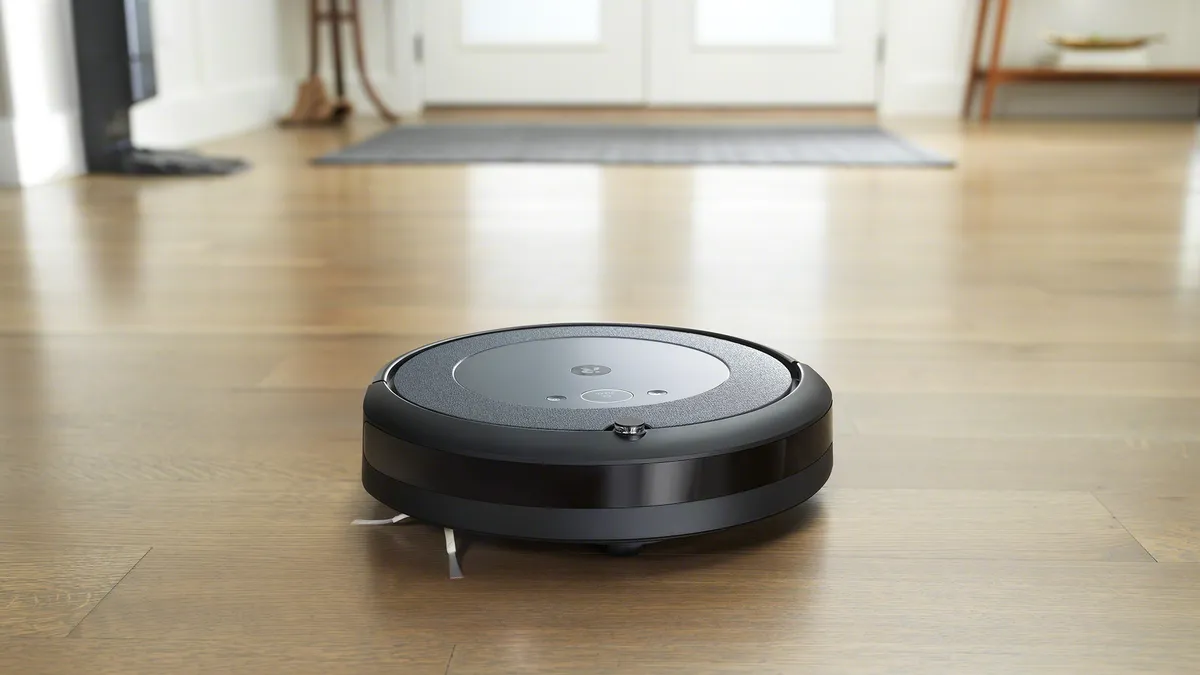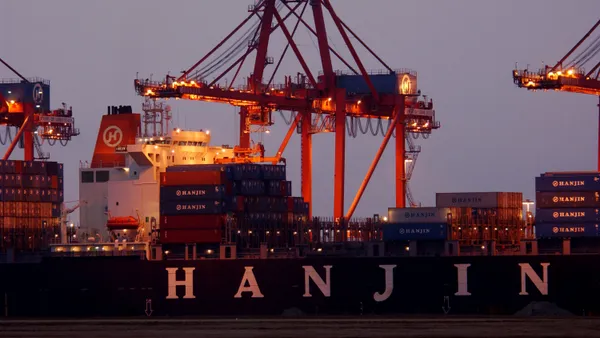Dive Brief:
- Shipping delays prevented iRobot from fulfilling over $35 million in Q4 orders, Chairman and CEO Colin Angle said on a Feb. 10 earnings call.
- The delays primarily stemmed from port congestion, a lack of warehouse labor and a snowstorm in the Pacific Northwest late in the quarter, said Julie Zeiler, executive vice president and CFO.
- Some of iRobot's orders were fulfilled in Q1, but the delays caused many orders to miss key promotional windows in Q4, Zeiler said. "Our commercial teams are working closely with retailers to sell that inventory over the coming quarters as they refine their 2022 promotional activities."
Dive Insight:
U.S. port congestion and challenges attracting warehouse talent caused headaches for many shippers in the past year. Parcel carriers flagged a slowdown in peak season volume near the end of Q4, attributed in part to companies having trouble getting inventory in time to be delivered.
These hurdles packed an extra punch in Q4 for iRobot, as the holidays are a critical sales period for the Roomba maker. In 2020, nearly 68% of iRobot's selling and marketing expenses and 67% of its consumer product revenue came in the second half of the year, according to its 10-K.
Now, the company has to help sell the products meant for the seasonal retail rush in early 2022. But iRobot's efforts to reduce its inventory this year are expected to be met by extended shipping timeframes.
"Work is underway to optimize our inventory, although we expect inventory measured in dollars and days will stay elevated over the next couple of quarters," Zeiler said.
The company is targeting year-end days in inventory to be "in the low 70-day range," Zeiler said. That would be an improvement from the 92 days reported at the end of 2021 — to which an increase in in-transit inventory added 22 days, per Zeiler — but higher than 55 days at the end of 2020.
With supply chain issues expected to persist for at least some of 2022, some shippers are deploying new strategies to avoid upcoming inventory pitfalls.
Under Armour reduced its spring and summer wholesale order book in anticipation of ongoing supply chain constraints, including extended transit times, CFO Dave Bergman said on the company's Q4 earnings call.
"If we didn't approach it that way, then we would be having a lot of product coming in late," Bergman said. "It would not be making it to the floors, and our wholesalers would probably be frustrated with the late visibility to that. And we would probably end up with some excess inventory."
On the supply side, iRobot is being proactive to secure enough semiconductors after facing constraints that tempered its second-half production levels. Angle said this "has required a lot of commitment to forward-looking demand plans in a way that we hadn't done in the past when we were optimizing for supply chain efficiency."
This story was first published in our Operations Weekly newsletter. Sign up here.














